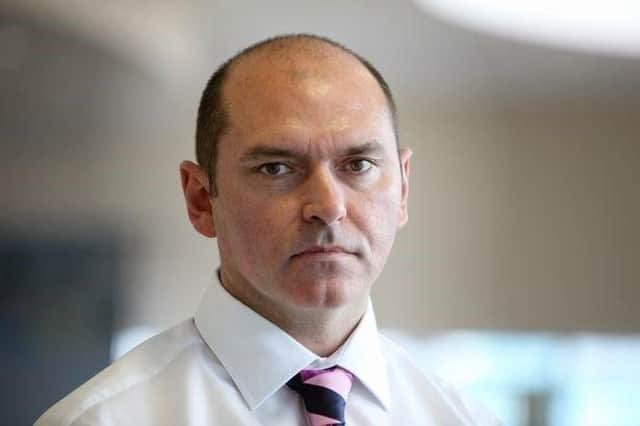Cautious welcome for NHS reforms in Northumberland


On Thursday, February 11, the Government launched new proposals to join up health and care services and embed lessons learned from the coronavirus pandemic.
It claims that the improvements ‘will support local health and care systems to deliver higher-quality care to their communities, in a way that is less legally bureaucratic, more accountable and more joined-up, by bringing together the NHS, local government and partners together to tackle the needs of their communities as a whole’.
Advertisement
Hide AdAdvertisement
Hide AdAmong the measures included in the ‘Integration and Innovation: working together to improve health and social care for all’ white paper are that the NHS and local government come together legally as part of integrated care systems (ICSs) ‘to plan health and care services around their patients’ needs, and quickly implement innovative solutions to problems which would normally take years to fix, including moving services out of hospitals and into the community, focusing on preventative healthcare’.
Another key proposal is the reduction of ‘unnecessary’ tendering processes for healthcare services.
Sir James Mackey, chief executive of Northumbria Healthcare NHS Foundation Trust, reminded members at the latest meeting of Northumberland County Council’s health and wellbeing board that the NHS has ‘been messing around with this since about 2016, because of the confusion we were left with after the 2012 reforms’.
“We’ve been through a few iterations and tried to move away from the very hard-edged, competition law, everything must be tendered, CMA (Competition and Markets Authority) position that we’ve had out of the 2012 changes, while also trying to encourage people to collaborate more with each other,” he added.
Advertisement
Hide AdAdvertisement
Hide AdThe North East and North Cumbria ICS is the largest in the country, covering Northumberland, Tyne and Wear, County Durham, Tees Valley and North Cumbria.
Sir James explained that the new proposals involve a ‘tidying-up of the NHS’ local function’, including the creation of a legal body within the ICS that can receive money, which it currently can’t, alongside an emphasis on working with partners, particularly in local authorities, on health improvement.
“The problem with that is every ICS is different, so we’ve got a three-and-a-half million population, 70-odd primary care networks (PCNs), 13 top-tier local authorities, and some of them have got two councils and six PCNs, so the operating model is really quite different,” he continued.
“What I’m hoping is that it’s written quite loosely and in a permissive way, to reflect that everyone is in a different place, so I see that as a really big opportunity to shape locally.”
Advertisement
Hide AdAdvertisement
Hide AdSir James, whose responsibility is for hospitals and community services in Northumberland and North Tyneside, said: “I really hope we can use this to build on the transformation board working we’ve got, tweak the membership a little bit, and then use that as a mechanism that allows the ICS to devolve things to us in our local place and we work together there where it makes lots of sense, rather than getting caught up in the confusion of how to reconcile our interests with the interests of people in Redcar, etc, in the broader ICS.